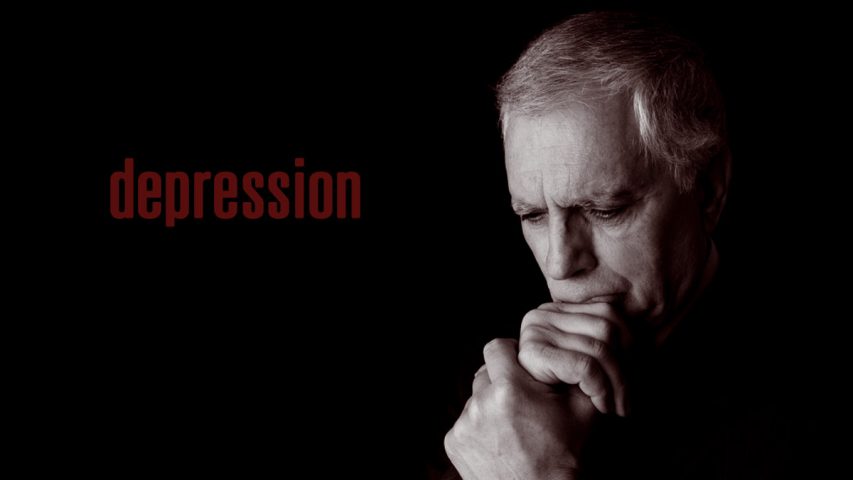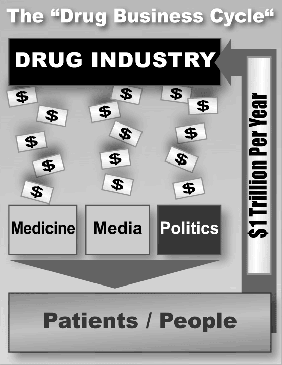- Have any questions? Contact us!
- info@dr-rath-foundation.org

One of the Most-Watched Medical Lectures in Europe
August 7, 2017
Pharma Firm Lobbying Judges To Put Opioid Addicts On $1,000 A Shot Injection Programs
August 17, 2017New Scientific Review Adds To Mounting Evidence Linking Deficiency Of B Vitamins With Depression

The findings of a new scientific review have added to the mounting evidence linking B vitamin deficiencies with depression. Published in Maturitas, the official journal of the European Menopause and Andropause Society, the researchers note that low levels of B vitamins are common in patients with depression and that supplementation with these nutrients has been shown to improve depression outcomes. Consistent with the key principle of Cellular Medicine, namely, that the primary cause of today’s most common chronic diseases is a long-term deficiency of vitamins and other specific nutrients, the review helps point the way towards safe, natural approaches to controlling this common mental health problem.
To conduct their analysis, the researchers looked for studies on vitamin B1 (thiamine), vitamin B2 (riboflavin), vitamin B3 (niacin), vitamin B5 (pantothenic acid), vitamin B6 (pyridoxine), vitamin B9 (folate/folic acid), and vitamin B12 (cobalamin). Using PubMed, they focused on research investigating the link between B vitamins, the immune system and depression. Observing that there is a clear connection between these three things, as well as also between a pro-inflammatory profile and depression, they suggest that “greater knowledge of how immune cells change in the presence of vitamin B derivatives could improve understanding of how immune changes may correlate with depression.”
B vitamins are not the only depression-fighting nutrients
 But B vitamins are far from being the only nutrients that have been shown to be helpful in depression. A meta-analysis published in 2016 found that omega-3 fatty acids can reduce symptoms of even major depressive disorder. Examining 13 randomized placebo-controlled trials involving 1,233 participants suffering from the condition, the researchers noted that higher doses of eicosapentaenoic acid (EPA) were especially beneficial.
But B vitamins are far from being the only nutrients that have been shown to be helpful in depression. A meta-analysis published in 2016 found that omega-3 fatty acids can reduce symptoms of even major depressive disorder. Examining 13 randomized placebo-controlled trials involving 1,233 participants suffering from the condition, the researchers noted that higher doses of eicosapentaenoic acid (EPA) were especially beneficial.
Similarly, a study published in 2014 provided clinical evidence that curcumin, the most abundant natural phenol present in turmeric, may be used as a safe and effective treatment for treating patients with major depressive disorder.
Other research has found that correcting vitamin D deficiency in depressed patients can improve their condition. In a study published in 2013, Iranian researchers found that, in a randomized clinical trial, a single injection of 300,000 IU of vitamin D was safe and effective in improving depression in patients who were vitamin D deficient.
Additional examples of nutrients that have been shown to be effective in fighting depression include vitamin C and acetyl-l-carnitine.
The pharmaceutical ‘business with mental health’
 The mounting evidence linking B vitamin deficiencies with depression clearly reinforces Dr. Rath’s finding that the primary cause of today’s most common chronic diseases is a long-term deficiency of vitamins and other specific nutrients. Just as with physical diseases, therefore, the trillion-dollar-a-year pharma industry will inevitably see natural approaches to improving mental health disorders as a threat to the patented chemical drugs that it markets for such conditions.
The mounting evidence linking B vitamin deficiencies with depression clearly reinforces Dr. Rath’s finding that the primary cause of today’s most common chronic diseases is a long-term deficiency of vitamins and other specific nutrients. Just as with physical diseases, therefore, the trillion-dollar-a-year pharma industry will inevitably see natural approaches to improving mental health disorders as a threat to the patented chemical drugs that it markets for such conditions.
Drugs for mental health raked in almost 35 billion dollars for the pharma industry in 2015. This made them its eighth-highest grossing global therapy category that year. To put this eye-watering figure into context, World Bank figures show that around half of the world’s countries had a GDP of less than 35 billion dollars in 2016.
As public awareness grows regarding natural therapies for controlling depression, stakeholders of the pharma industry will likely attempt to organize global PR campaigns with the goal of discrediting and even banning such approaches by law. Towards the creation of a healthier and happier world, it is clearly in all of our interests to ensure they don’t succeed.



